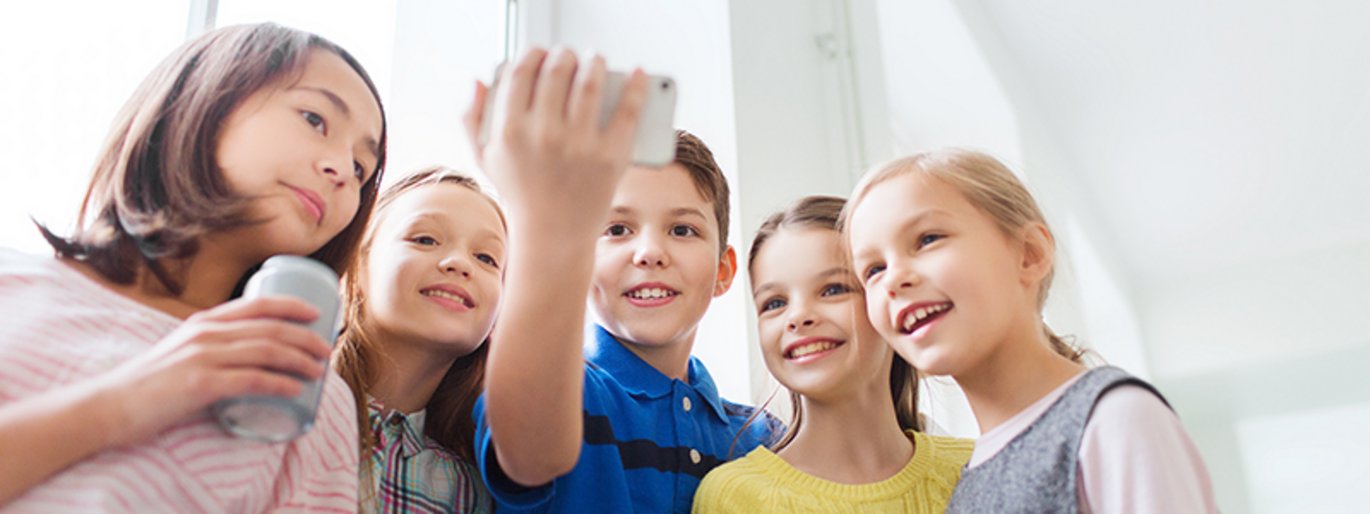Eight million DKK from the Rockwool Foundation for DPU research project on children's digital lives and well-being in school
When it comes to children's use of digital media and technologies such as mobile phones and screens in school, there are many strong opinions in the public debate. However, there is too little factual knowledge about how children actually interact with screens and mobile phones in school, what they mean for their well-being, and how schools can contribute to preventing negative experiences. These aspects will now be illuminated in a new large-scale research project at DPU, Aarhus University, supported by the Rockwool Foundation.

Translation from Danish: ChatGPT
"It is crucial to understand that children and young people's digital lives are complex. They can be arenas for bullying, exclusion, and other unpleasant experiences. But they can also be avenues for participating in social communities, both in the physical world with friends and peers. No families have landline phones anymore, and when spontaneous arrangements are made to meet up for playing football or skateboarding, communication happens through chat messages and virtual friend groups," says Associate Professor Andreas Lieberoth from DPU, Aarhus University.
He is leading the project 'NOBE,' which aims to examine the relationship between students' digital lives and their well-being in school, as well as how both teachers and parents can meaningfully intervene to support children and young people. The project will span the next four years and has just received 7.9 million DKK in funding from the Rockwool Foundation.
"For all children and young people, it is possible that their digital lives may also involve unpleasant situations that they find challenging to handle and difficult to discuss with adults," says Andreas Lieberoth about the background of the project.
The researchers will investigate how digital life unfolds in school for students from 3rd to 8th grade and how schools can contribute to improving children's well-being. The project will be carried out in collaboration with three public schools, Læremiddel.dk at UC Lillebælt, Børns Vilkår, and the school administration in Aarhus.
Andreas Lieberoth emphasizes the need for a nuanced approach. On the one hand, there is no research evidence to claim that there is a clear link between children and young people's regular screen usage and the development of malaise or even symptoms of anxiety and depression. On the other hand, he points out that among traditionally vulnerable youth and those who experience social difficulties in periods, there may be a tendency for them to seek refuge in social media, which can further exacerbate social isolation.
How prominent are screens in schools?
Andreas Lieberoth explains that the project is both a basic research and intervention project.
"In the media, there has been much talk about digital learning resources and the presence of screens in schools, but the basis for these discussions is often anecdotal. From research, we know certain things about the number of schools with mobile phone rules and the use of mobile phones during breaks. However, there has been a lack of in-depth mapping of how much children actually use digital media during school hours and what role they play in their social communities at school," says Andreas Lieberoth.
Based on a more solid knowledge base, the researchers will then implement three months of direct intervention experiments in the participating schools. Every other week, students will be asked about how they have used digital media in their communities. There will be alternating themes related to negative experiences and problems they may have encountered in their digital lives.
One period may focus on exclusion, followed by bullying in the next, and then boundary-crossing experiences in the third. The students' responses will be discussed in the whole class, giving them an opportunity for a collective conversation about their own digital experiences and their behavior towards others. There will also be follow-up measurements on students' well-being and how the interventions have affected it, which will be compared to a control group where teachers have not intervened continuously.
"In this way, ongoing reflections in the classrooms can be based on what the children feel and actually experience as problems, rather than what adults imagine the problems to be. The aim is to establish a knowledge base for how teachers, parents, and society can meaningfully intervene to support students' digital well-being and protect children and young people who are at risk of developing psychological malaise during their formative years in school," concludes Andreas Lieberoth.
About the project:
The project "Opening windows to negative online behaviors and experiences (NOBE)" is a four-year research project supported by the Rockwool Foundation with 7.9 million DKK.
The project is led by Associate Professor Andreas Lieberoth and conducted at DPU, Aarhus University in collaboration with UC Lillebælt, Børns Vilkår, the Children and Youth Administration in Aarhus Municipality, and three public schools in Aarhus.
For further information, please contact:
Andreas Lieberoth Phone: 25 80 88 59 Email: andreas@edu.au.dk
